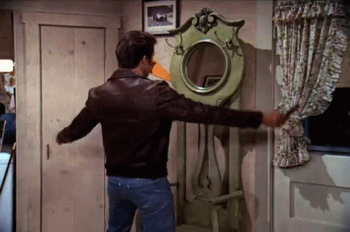Happiness.
Hmmmm.
Happiness strikes me as some smarmy piece of crap prince from a Pixar film I pretend not to know the name of who’s just bounced into the room and begun spewing smarm all over the place from his eyebrows.
Hey buddy.
You can’t count on this guy. If you let him, he’ll make you feel good about yourself, but experience will tell you to be wary of him. As quickly as he comes around, he’ll drop you and move onto the next coolest guy in the banqueting hall, while you’re left there on your tod thinking what the hell happened. The problem with happiness is that it is transient. Or to use the Word Of The Day that landed on my desktop this morning, it’s ephemeral. Like the smarmy Prince’s affections, it doesn’t last.
Coming and going like you know who.
The interesting thing about happiness is that you only really begin to investigate it, once you start feeling like crap. You only start deconstructing the fickle piece of crap Prince once he’s deserted you. It strikes me that happiness can’t be a constant. Because happiness is not a permanent state. Contentment might tick that box, but contentment is a different thing altogether.
Happiness is a high.
And from great heights we must inevitably descend.
People who are perpetually happy are morons.
And it’s probably a cover up anyway.
Hundred per cent, off-camera, I bet even the Chuckle Bros had beef.
*
I’ve got a tattoo on my left arm, the last line of a poem called Desiderata.
Out of context, the line seems like a fairly banal Hallmark card kind of platitude. But what makes it interesting is that it’s the parting shot of a very long poem that touches on all sorts of incredible stuff; silence, love, death, truth, courage, and more. And the author chose to end with this.
When all was said and done, Max Ehrmann still deemed personal happiness as the grail of our worldly objectives. But crucially what he was saying wasn’t be happy. He was saying more than this. He was saying strive to be happy. Because the world is a cruel playground, and much of your time in this playground will be spent running from the 6ft 8 skinhead with the thyroid problem who’s constantly throwing rocks at your head with unerring accuracy. Every single break-time whether you like it or not. The striving is important, because odds-on there’ll be times in your life when you’ll have forgotten what happiness feels like.
You can’t be happy all the time.
Just look at the Chuckle Brothers.
Well, maybe they can.
Whatever, my point is this.
I think we should be wary of the hallowed Pursuit of Happiness.
You can’t just be happy. Perhaps you shouldn’t even strive to be happy. Because happiness should never be an objective. Happiness is a by-product of something else. Happiness isn’t the beer garden of some country pub at the back end of a 36-mile hike through the Lake District. Happiness is the fleeting moment when, rounding a corner into a glen, we see a host of golden daffodils. It’s something that creeps up behind us and taps us on the shoulder, and just as quickly as it appears, it’s gone again. If all we aim for is the beer garden, we run the risk of disappointment. The beers won’t be cold enough, and some especially red-faced man in flip-flops will be working his way through the last four yorkshire puddings left in the kitchen.
If we set out our stall on happiness, we’ll never have enough of it.
Same thing as chasing a high.
And that never ends well, however good your shit is.
Toni ever strike you as that happy?
*
Contentment on the other hand is different. Contentment doesn’t need highs.
Contentment counts its blessings, and is fine with the way things are.
Contentment is looking in the mirror, and the mirror looking back and saying yo.
Contentment is The Fonz.
I watched a lot of Happy Days without ever understanding how Fonz got to be as cool as he is. He was just cool. I don’t remember any montages of him busting around in a leather jacket as a kid, or his moms telling Richie and Chachi how her little Fonz had a tricky adolescence. All I remember was whenever he walked into a room, chicks on the soundtrack went mental. Fonz was cool. He was cool because he was content. When he looked in the mirror, he didn’t need to do shit. Not because he looked great already, but because when he looked in the mirror he knew who and what was staring back at him.
This is all a question of semantics, these are all just words, but if the search for happiness can be downgraded to being cool with contentment, then Fonz can teach us a lot.
Fonz was cool because he was true to himself.
And contentment, ergo happiness, has a lot to do with personal truth.
Like Shakespeare said..
This above all: to thine own self be true,
And it must follow, as the night the day,
Thou canst not then be false to any man.
The truth is one of the most difficult concepts to get our heads around, because we spend so much time trying to force-feed it with what we want to justify. So it becomes blurred and indistinct. But at the end of the day, the truth is so obvious. It’s so clear. Nothing is more simple than the truth. Our problem is that we’ve become experts at pulling the wool over our eyes and blinding ourselves to it. In 1953, a Palestinian diplomat at the League of Nations when asked a question by the League, on the rack, replied simply…
That is a very difficult thing to answer, so I will tell the truth.
Deep, deep down, 20,000 leagues under our posturing and day-to-day fronting, we know what our truth is. Each person’s truth might be unique to them, but it isn’t anything else. It’s just the truth. Like the fruits of 83% of my flatmate’s well-intentioned stints in the kitchen, the truth isn’t easy to stomach, which is why we soften it with self-pity and cheapen it with our protestations. But it’s still always there.
Kate Tempest:
And then… on the skies we can sail.
*
Every King, every councillor, every CEO, every underground carpark attendant, every Neo-Nazi, every pious priest, every Sunday League ref, every mother, father, son, daughter, pet hamster etc, resting their heads down on their pillows at night, in the depths of their solitude, knows what the hell is really going down. I think so. Beneath layer upon layer of justification and erring our inner voice is ever-present, softly whispering to us from a private interior room, what is right and what it is we know we must do. Whether we can hear it just depends on how hard we try to listen. Perhaps this is what is really meant by our moment of truth.
And guess what sets you free, apparently.
The happiest people in the world are those who have just been freed from some sort of shackle.
Forget happiness, aim for contentment, through truth.
Then we’ll get closer to radness.



















